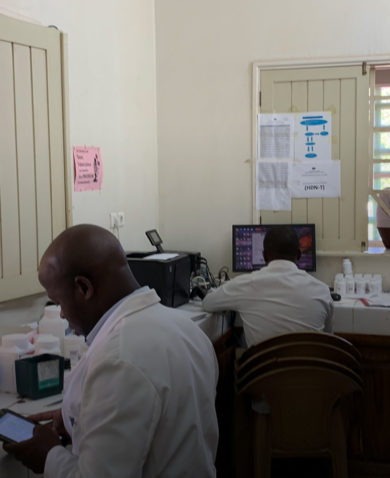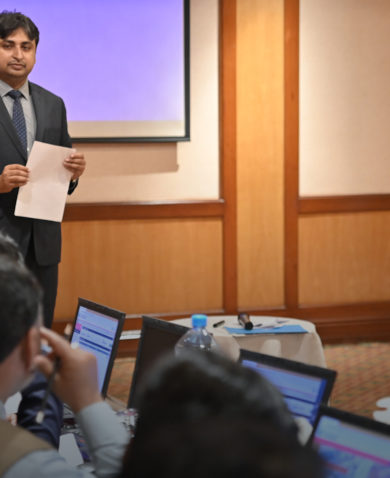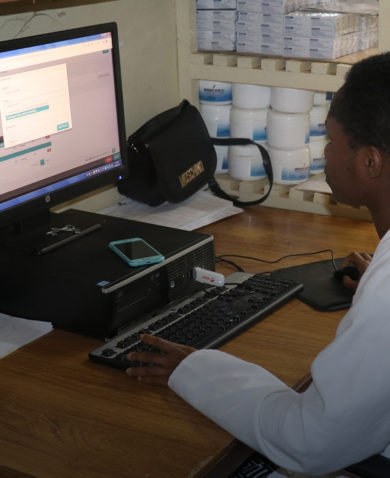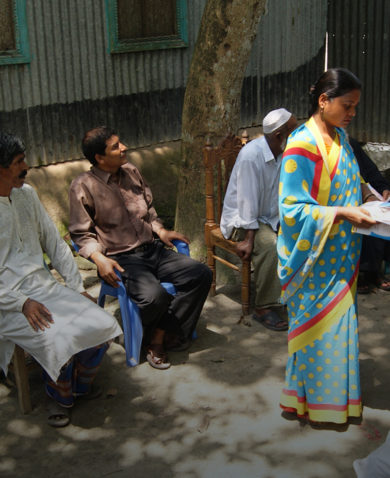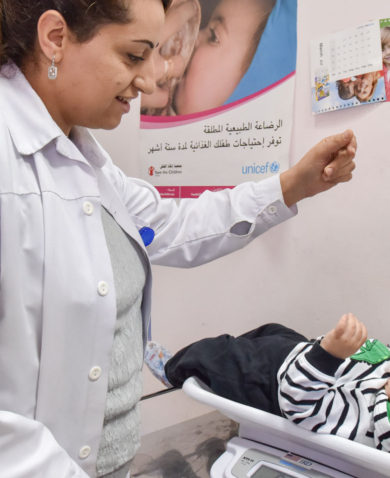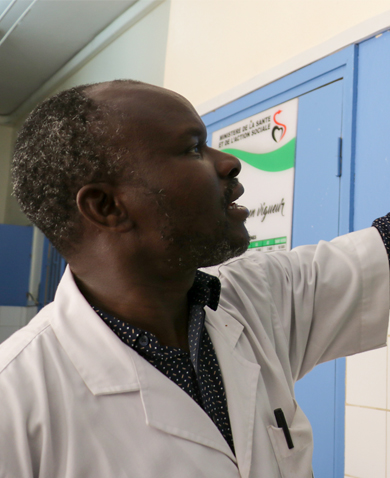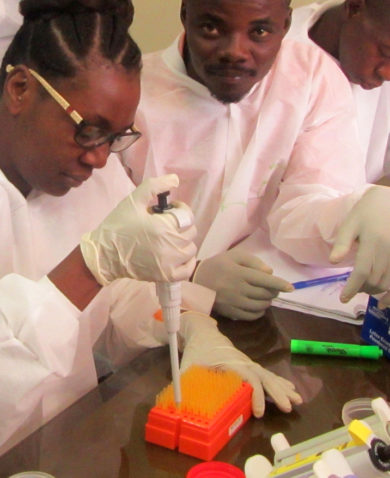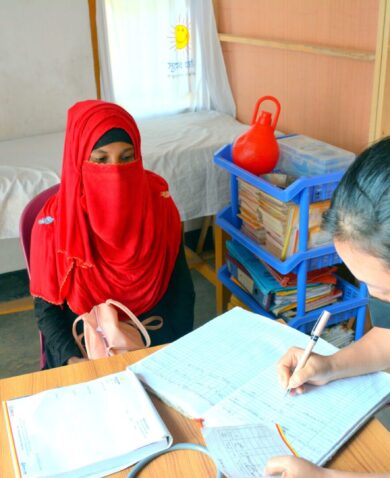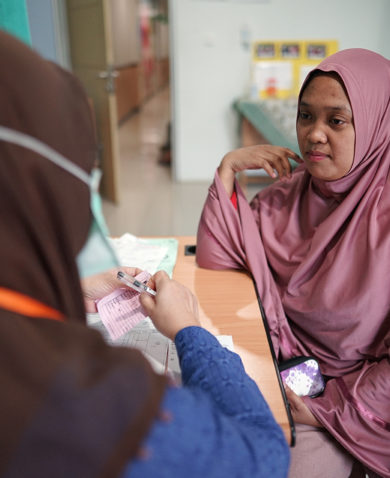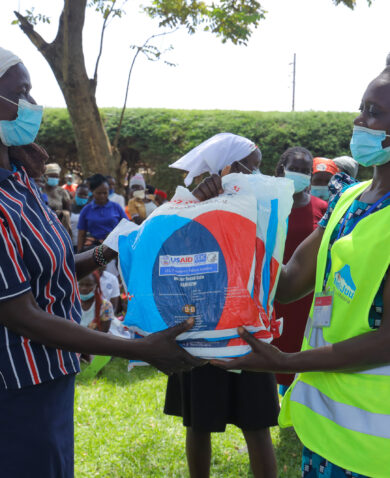
Enhancing Patient Care in Ethiopia through a Data-Driven Tool
June 5, 2024 | 3 Minute ReadIn Ethiopia, we are enhancing medication control and providing optimal service delivery through a digital tool that tracks pharmaceutical inventory.
When inventory goes missing, whether it’s due to theft, weather damage to a warehouse, or products being mislogged and incorrectly accounted for is a significant problem for supply chains. This issue can ultimately result in medicines not being available for the patients who need them.
In Ethiopia, to ensure that pharmacies are accountable for their inventory, the Ministry of Health has begun using a new tool, the Auditable Pharmaceutical Transactions and Services (APTS), a data-driven system of interventions designed to track information that improves the quality of pharmaceutical services for the benefit of patients and medical personnel and implemented by the Chemonics-led USAID Global Health Supply Chain-Procurement and Supply Management (GHSC-PSM) project. We spoke with Ayalew Adinew, APTS advisor for the GHSC-PSM project in Ethiopia, shared his experience helping to develop the system and how the project provided training and technical assistance for pharmacy professionals and auditors to address these problems through the APTS system.
1. Tell us about yourself and what made you so passionate about APTS.
I have a pharmacy background and have worked in different roles in hospitals throughout Ethiopia. I have been employed by the Ethiopian government for 16 years and worked on USAID projects for 12 years, making a total of about 28 years. These experiences instilled in me a deep understanding of the healthcare system’s challenges and fueled my determination to drive positive change in improving patient care.
Eager to expand my impact. Along the way, I earned a master’s degree in pharmacy service and supply chain.
As an APTS Advisor, I am at the forefront of developing and implementing APTS regulations, directives, and guidelines across six regional states in Ethiopia, shaping the future of pharmaceutical practices in the country. My passion for advancing pharmacy in Ethiopia is driven by a deep commitment to education, accessibility, accountability, and global learning, all to improve patient care and the pharmaceutical landscape in my country.
2. Before the implementation of the APTS in Ethiopia, what challenges did the pharmaceutical sector face?
One of the most pressing issues was the theft of essential medicines, such as anti-malaria drugs, intended for distribution to those in need. This theft compromised the availability of vital medications and undermined trust in the healthcare system.
The inability to effectively track and monitor medication distribution posed a significant obstacle for pharmacists, even those performing their roles impeccably. Without proper auditing mechanisms in place, it was challenging to detect and deter theft, leaving pharmacists vulnerable to unjust repercussions for incidents beyond their control.
An illustrative example of these challenges is the case of a pharmacist who, despite diligently fulfilling his professional duties, found himself unjustly imprisoned three times due to medicines being stolen under his watch. This scenario highlights the lack of accountability and audibility within the pharmaceutical supply chain, making it difficult to identify and prevent theft.
Overall, the absence of robust systems for auditing and securing medications posed serious challenges to the integrity and effectiveness of the pharmaceutical sector in Ethiopia, hindering efforts to provide essential healthcare services to the population.
3. How did the project equip pharmacy professionals, auditors, and human resources with the necessary training and technical support to overcome these challenges?
In GHSC-PSM’s endeavor to empower pharmacy professionals and auditors with the requisite training and technical support to address the challenges in medicine management, we have taken deliberate steps to ensure comprehensive technical assistance and capacity building. The main objective has been to enhance medication control and provide optimal service delivery through the APTS system.
With the strategic collaboration of the GHSC-PSM, the project has successfully trained a total of 6,860 professionals on APTS. This training initiative has been pivotal in equipping pharmacists and auditors with the necessary skills and knowledge to effectively utilize the APTS system. Notably, the training sessions have been conducted across various health facilities, ranging from a minimum of 6 professionals trained in smaller facilities to a maximum of 54 professionals trained in larger institutions, with an average of 20 individuals per facility, which signifies proper human resource deployment, that impact patient satisfaction.
APTS is in use by 420 health facilities across Ethiopia, with 343 of these facilities receiving assistance from GHSC-PSM, while USAID initially supported 77 facilities before transitioning to GHSC-PSM assistance. The results are evident: more staff have been deployed based on APTS workload analysis and APTS regulations, increasing the number of patients served per day per pharmacist from 6 to 52. This initiative holds significant promise, particularly in improving healthcare outcomes for vulnerable populations such as mothers and children.
Note: This interview has been edited for length and clarity and posts on the blog represent the views of the authors and do not necessarily represent the views of Chemonics.
Banner image caption: A pharmacy store. Photo credit: GHSC-PSM/Chemonics

